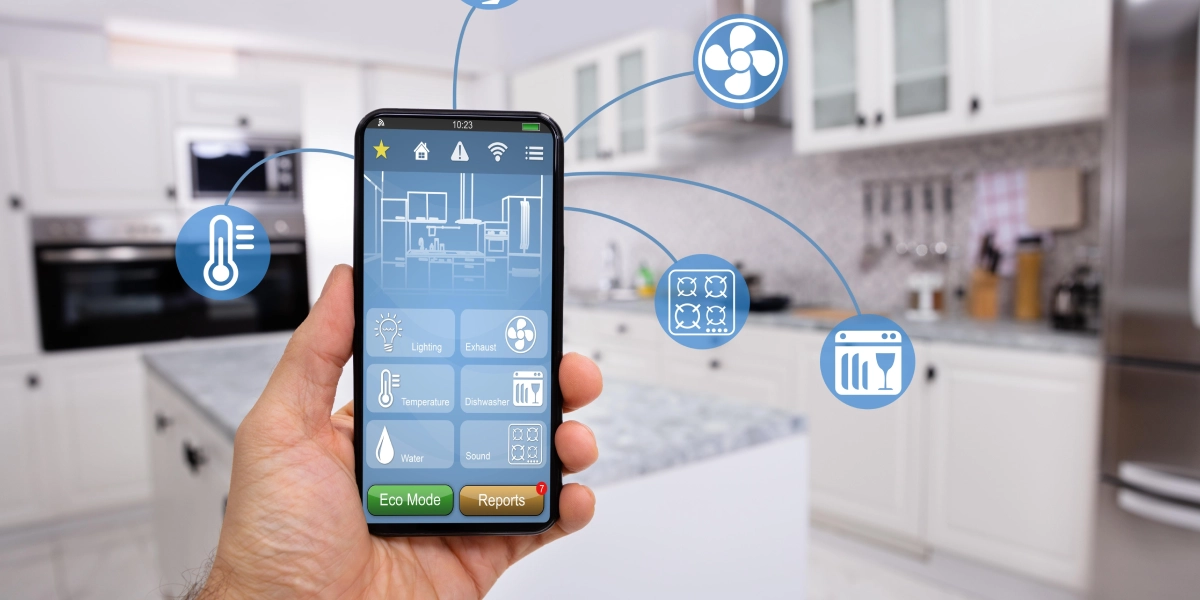Smart-home businesses are increasingly bundling devices with subscriptions, offering users integrated apps, cloud storage, and automation tools. While these packages boost customer value, they also create VAT complexities that many businesses fail to address correctly. As the UK smart-home sector matures, industry bodies like CEDIA set essential technical and installation standards for professionals. Their efforts, alongside VAT compliance and other regulatory frameworks, ensure businesses maintain both operational and fiscal integrity. VAT for smart-home devices and subscriptions is becoming a critical concern as businesses must navigate evolving HMRC rules.
At Apex Accountants, we help smart-tech companies across the UK prepare for HMRC’s evolving VAT rules. With 2026 bringing tighter guidance on digital services and mixed supplies, early planning is key. Our team supports bundled pricing strategies, compliance checks, and VAT structuring for both hardware and software services.
This article outlines what you need to know about VAT for smart-home products and services ahead of 2026. We cover supply classification, value apportionment, free trials, and OSS registration for cross-border sales.
Composite or Multiple Supply? HMRC Classification Is Key
The first VAT challenge is determining whether the bundle is a composite supply (single VAT treatment) or a multiple supply (split VAT treatment). This depends on economic and commercial reality, not packaging.
Composite supply: One principal item (e.g., smart thermostat), with the subscription being ancillary (e.g., app access). The whole supply is taxed at the rate of the main item—usually 20% standard VAT.
Multiple supply: If the subscription service is independently valuable or optional, then the transaction splits. The device and the service are taxed separately, even if sold together.
HMRC VAT Notice 700, Section 8, confirms that each supply’s VAT treatment must reflect the supply’s nature and the customer’s perception. This remains a key point under the VAT rules for smart-home subscription models expected to evolve in 2026.
Apportionment Rules Under 2026 VAT Guidance
If the supply is split, you must apportion the bundle value correctly. Starting April 2026, under updated VAT guidance, HMRC now expects:
- Use of actual selling prices where the device and service are offered separately
- If no market prices exist, use a cost-plus method or fair value estimate, supported by evidence
- Discounts must be split proportionally
HMRC may reject arbitrary apportionment or promotional bundling if it results in VAT loss. Proper apportionment is essential for strong VAT compliance for smart-home tech companies, especially those managing multiple subscription tiers or long-term contracts.
VAT on Free Devices and Trial Periods
Are you offering a free device with a paid subscription? HMRC may view this as a non-monetary consideration or linked supply.
If the device is supplied in return for a minimum subscription period, it is not truly free. VAT applies to the entire economic consideration—whether cash, obligation, or deferred payment. Even “£0 upfront” devices may attract VAT if the long-term contract offsets the cost.
Businesses must account for these offers under the VAT rules for smart-home subscription models to avoid HMRC challenges.
Cross-Border B2C Sales: OSS Rules Apply
If you supply digital subscription services to EU consumers, UK businesses must register under the Non-Union OSS (One Stop Shop) to account for VAT in each EU country. Physical devices remain subject to import/export VAT rules.
OSS simplifies VAT compliance for digital elements.
Devices shipped to the EU must comply with customs, distance selling, and VAT-on-import rules.
Use of Vouchers and Loyalty Schemes
If you bundle devices with digital vouchers (e.g., 3-month cloud access), new 2026 rules on multi-purpose vouchers (MPVs) apply. These vouchers are VAT-taxable only upon redemption, not at issue, unless specifically linked to a taxable supply.
Case Study: VAT Structuring for a Smart-Home Security Provider
A UK-based smart-home security company approached Apex Accountants in early 2026. The business sold Wi-Fi-enabled cameras bundled with a 12-month cloud storage and live monitoring subscription. Customers paid a single upfront fee for the full package.
Initially, the company treated the entire transaction as a hardware sale and applied 20% VAT on the full value. However, HMRC flagged concerns during a routine review—questioning whether the subscription service should have been accounted for separately under digital supply rules.
Apex Accountants conducted a supply classification analysis. We found the subscription had significant standalone value and was marketed as a core feature. Based on HMRC guidance (VAT Notice 700), we advised the client to treat the sale as a multiple supply—requiring apportionment between the device and the subscription.
We then:
- Implemented a fair apportionment model based on actual selling prices from their online store
- Adjusted their VAT returns for the past two quarters
- Helped them issue updated VAT invoices for affected transactions
- Registered them under the Non-Union OSS scheme to simplify EU digital service VAT reporting
As a result, the company avoided penalties, corrected its VAT position, and now has a compliant bundling model that supports future growth across the UK and EU.
Apex Accountants continues to advise the client on digital pricing, OSS compliance, and VAT implications for new product launches.
How Apex Accountants Supports VAT for Smart-Home Devices and Subscriptions
Smart-home bundled services require careful VAT treatment. Misclassification or poor apportionment can lead to backdated VAT bills, interest, and penalties.
At Apex Accountants, we:
- Classify supply models (composite vs multiple)
- Build compliant apportionment strategies
- Guide VAT invoicing for bundled offers
- Advise on OSS registration and cross-border sales
- Support you during VAT inspections or HMRC challenges
Staying VAT-compliant in 2026 is essential for smart-home businesses using bundled pricing. With evolving HMRC rules and increased scrutiny, accurate VAT treatment protects both your cash flow and your reputation. We offer tailored support to improve VAT compliance for smart-home tech companies, ensuring your pricing model remains commercially viable and fully compliant.
Contact us today to discuss how we can support your VAT compliance for bundled smart-home services.



